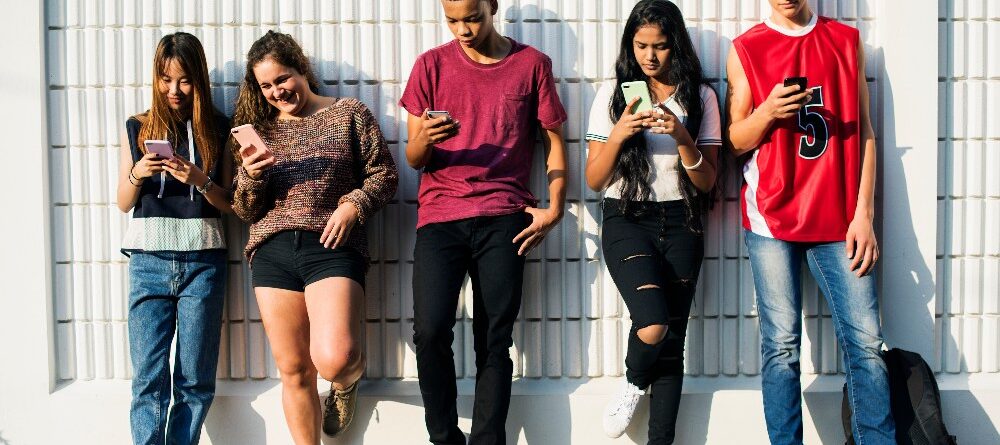Screen Addiction in Adolescents
Screen use is emblematic of our era of instant connection and technological immersion. From learning viral TikTok dances to using digital assistants to help with homework, cellphones, tablets and computers offer a steady stream of information and stimulation for teenagers but the line between beneficial use and addiction can quickly start to blur when screen time begins interfering with your child’s self-control, emotional health and real-life responsibilities.
What Is Screen Addiction?
Screen addiction is a behavioral condition marked by difficulty putting technology away despite repeated attempts, alongside symptoms such as withdrawal, tolerance and even relapse.
Adolescents are especially vulnerable to the compulsive habits digital platforms can trigger because the parts of their brains that govern emotional regulation and decision-making skills are still developing. Many studies suggest the brain is not full developed until a young person is around 25 years old. This can make teen smore vulnerable to addiction and other compulsive behaviors.
A recent study published in JAMA reveals the depth of the issue.
- 48% of adolescents reported losing track of time while using their phones.
- 25% said they turn to social media to escape or avoid problems.
- Another 25% constantly think about social media apps, even when not actively using them.
- 17% have unsuccessfully tried to cut back.
- Perhaps most concerning, 11% admit their screen habits adversely impact their academic progress.
For adults, these statistics should spark concern about Gen Z’s emotional health, attention spans and future well-being.
Understanding the Emotional Impact of Constant Connectivity
Social media is simultaneously a lifeline and also a liability for teens. On the positive side, digital tools offer instant access to information, peers and a vital outlet for self-expression. Unfortunately, these platforms have carefully crafted algorithms that can fuel feelings of isolation, insecurity and emotional instability.
The dopamine-driven feedback loop of likes and comments may create an overreliance on external validation, causing adolescents to derive most or all their self-worth from fleeting social metrics. This pressure could make young technology users more vulnerable to depression and anxiety, especially when they feel invisible or bullied in online spaces.
Paying Attention to the Risks and Creating a Culture of Mindful Tech Use
Excessive screen time can contribute to a host of problems – sleep disruption, anxiety, attention deficits, lower academic performance and impaired social development. When adolescents substitute real-world experiences with digital ones, they may miss valuable opportunities to build resilience, emotional intelligence and authentic relationships.
The behavioral traits linked to screen addiction mirror those of substance-related dependencies – making it crucial to study the psychological and neurological effects associated with prolonged digital engagement. Awareness is the first step, and informed guidance from parents, other caregivers, educators and mental health professionals can make a lasting impact.
As a parent concerned about a teen’s digital exposure, start implementing change by demonstrating the behavior you want to see. Your family can cultivate healthier relationships with technology by prioritizing device-free meals or digital detoxes and having open conversations about how screens affect your emotions and energy levels. The goal is to empower children to use technology as a tool instead of a crutch – and remind them that their identities are far more complex than their online presence.
Teen and Family Counseling in Miami
You don’t need to ban technology to encourage your teenager to develop healthier digital habits. However, you can model responsible device use, set boundaries and create meaningful offline experiences. Proactively preventing screen addiction in your child can support a healthy relationship with technology and encourage your child to thrive outside of their digital world.
R&A Therapeutic Partners understands that adolescence can be a complex and challenging time. We offer personalized counseling services designed to meet teens where they are. Whether your child struggles with anxiety, depression, substance abuse or technology overuse, Ray Estefania and Ana Moreno can help you set appropriate limits for your child and also teach them the skills they need to self-regulate and avoid some of the pitfalls of screen overuse and addiction. Reach out today to learn about our comprehensive, family-focused approach that combines evidence-based care with empathy, understanding and experience.
At R&A Therapeutic Partners Raymond Estefania and Ana Moreno specialize in substance use and mental health disorder evaluations, treatment, intervention and therapeutic/educational consulting for clients throughout the greater South Florida area, as well as nationally and internationally. For more resources and information please visit Therapeutic-Partners.com or on Facebook.

